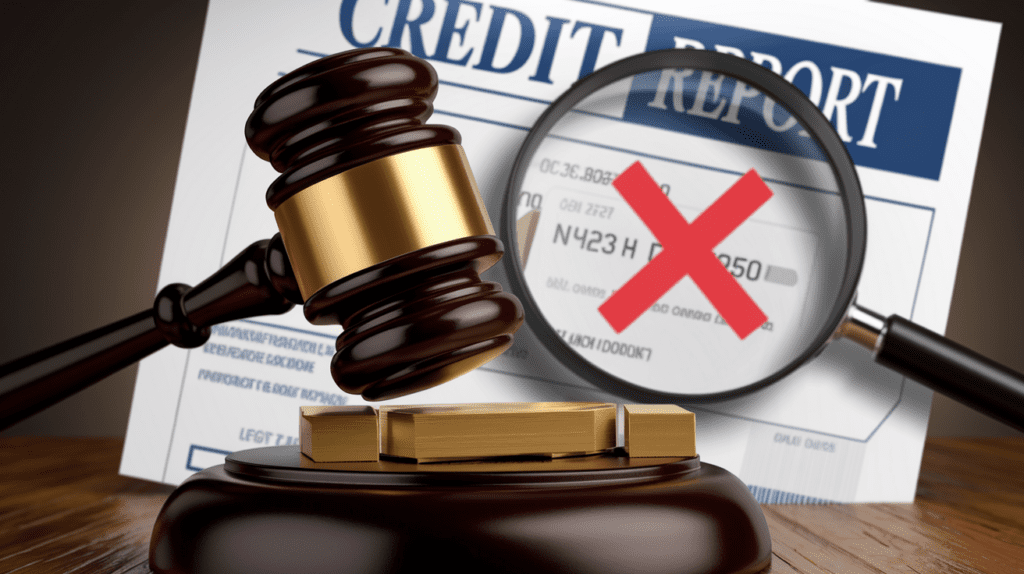When you think of credit repair organizations (CROs), you probably picture companies that promise to help clean up your credit report. What most people don’t realize is that third-party debt collectors (TPDCs)—the same ones calling you about past-due bills—can sometimes fall under the same legal definition as CROs. Yes, that’s right—debt collectors can be considered credit repair organizations.
In this post, we’re diving deep into how debt collectors can qualify as CROA (Credit Repair Organizations Act) entities, why this matters for you as a consumer, and how this legal overlap gives you extra protection against shady collection practices.
What Is CROA, and Who Does It Protect?
The Credit Repair Organizations Act (CROA) is a federal law designed to protect consumers from misleading promises and deceptive practices by companies claiming they can repair or clean up your credit. It specifically targets entities that offer credit repair services for payment—in other words, businesses that say, “Pay us, and we’ll improve your credit.”
CROA sets strict rules on how these companies can operate. For example, they can’t make false promises, and they have to disclose your rights up front, including the fact that accurate negative information can’t be removed from your credit report. CROA’s goal is to ensure that consumers get a fair deal and aren’t duped by unscrupulous credit repair scams.
But here’s where things get interesting: debt collectors can also end up qualifying as credit repair organizations if they offer services to improve your credit in exchange for payment.
When Does a Debt Collector Become a CRO?
So, how does a third-party debt collector—whose main job is to collect money—end up as a credit repair organization? It happens when they promise to delete negative credit information from your report in exchange for payment. It’s a line that debt collectors cross more often than you might think.
Here’s a typical scenario: A debt collector sends you a letter offering to settle your debt. But they don’t stop there—they sweeten the deal by telling you that if you pay, they’ll remove the negative mark from your credit report.
Sounds tempting, right? But here’s the catch: by making that offer, the debt collector is no longer just collecting a debt. They’re offering a credit repair service—and that means they’re now subject to the regulations of CROA.
The Legal Impact: Debt Collectors Under CROA
Once a debt collector crosses the line into credit repair services, they have to play by CROA’s rules. These rules are designed to protect you, the consumer, from misleading or unfair practices.
Here’s how it works:
- Truthful Claims: Debt collectors can’t make false or misleading promises about credit repair.
- Required Disclosures: Under CROA, credit repair organizations (including debt collectors acting as CROs) must provide specific disclosures to consumers.
- Promises Must Be Kept: If a debt collector promises to delete a negative mark from your credit report as part of a settlement deal, they’d better follow through.
Why This Matters: Your Rights Under CROA
If a debt collector becomes a credit repair organization, they’re on the hook for CROA compliance, and that’s great news for consumers. Here’s why:
- Extra Legal Protection: When a debt collector promises credit deletion in exchange for payment, they’re legally obligated to deliver on that promise.
- Guard Against Misleading Tactics: Debt collectors can no longer make false promises about removing negative credit information.
- Transparency Is Key: CROA requires that debt collectors provide more transparent information about your rights.
Common CROA Violations by Debt Collectors
Here are some common ways third-party debt collectors violate CROA:
- False Promises of Credit Deletion: A collector tells you that paying off a debt will result in it being removed from your credit report.
- Failure to Disclose Your Rights: A debt collector offers to help improve your credit but doesn’t give you the legally required disclosures about your rights under CROA.
- Misleading Credit Improvement Claims: The collector implies that settling a debt will improve your credit score without explaining that other factors could still impact your credit.
What We Do: Fighting CROA Violations by Debt Collectors
At Hyslip Legal, LLC, we’ve seen countless cases where debt collectors overstep their legal boundaries by offering credit repair services without complying with CROA. We take these violations seriously because they represent not only deceptive practices but also a failure to honor your rights as a consumer.
We specialize in adding CROA claims to lawsuits involving third-party debt collectors. Whether it’s pursuing damages under CROA or holding them accountable under the FDCPA, we’re here to protect your rights and make sure that debt collectors play by the rules.
Debt Collectors Can’t Have It Both Ways
If a debt collector promises to delete negative credit information in exchange for payment, they’re not just a debt collector anymore—they’re a credit repair organization. That means they’re legally bound by CROA, and if they fail to comply, you have every right to take action.
That said, it’s important to note that the application of CROA to third-party debt collectors is a novel legal theory. While it’s clear that CROA applies when debt collectors promise credit deletion or improvement, the legal landscape lacks significant court rulings specifically addressing this overlap. However, the protections under CROA are still powerful, and any attempt to offer credit repair services without compliance should be pursued vigorously.
If you’ve been misled by a debt collector’s promise of credit repair or feel your rights under CROA have been violated, reach out to us today. We’re here to help you understand your options and hold debt collectors accountable for their actions.

